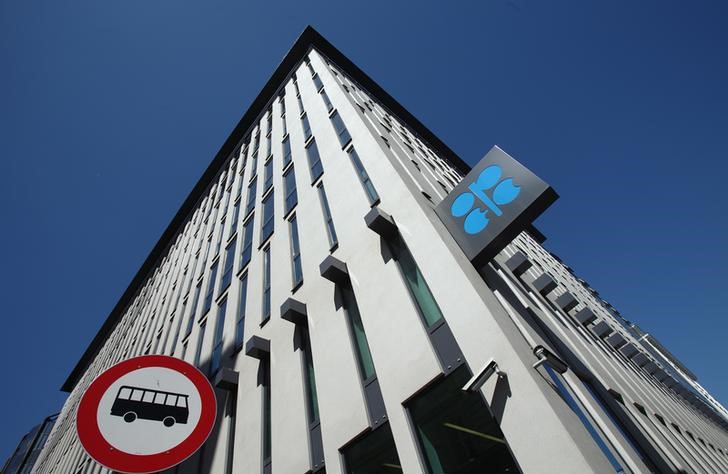* U.S. crude stocks draw down for second week in row
* Brent closes above $50 a barrel for first time in 7 months
* OPEC meeting diluted by no output cap; Saudis pledge no ramp up (Recasts, adds settlement prices and Brent's milestone)
By Barani Krishnan
NEW YORK, June 2 (Reuters) - Oil prices edged higher on Thursday, with Brent settling above $50 a barrel the first time in seven months, after the latest drawdown in U.S. crude stockpiles offset OPEC's failure to set a ceiling for its output.
U.S. crude stockpiles fell 1.4 million barrels last week, drawing for a second straight week, data from the Energy Information Administration showed. Although lower than a 2.5 million-barrel draw forecast by analysts, the decline helped crude futures reverse early losses. EIA/S
U.S. West Texas Intermediate (WTI) crude futures CLc1 settled up 16 cents, or 0.3 percent, at $49.17 a barrel. It had tumbled more than $1 earlier.
Brent futures LCOc1 rose 32 cents, or 0.6 percent, to settle at $50.04, after peaking at $50.30. It was its first settlement above $50 since Nov. 3.
"It was more a definitive day for the EIA than OPEC," said Carl Larry, director of business development for oil & gas at Frost & Sullivan in New York. "Leaving aside the crude draw, the demand numbers for U.S. gasoline and diesel were a bit too large to ignore."
U.S. gasoline stockpiles USOILG=ECI fell by 1.5 million barrels, compared with expectations for a 157,000-barrel drop, the EIA data showed. Inventories of distillates USOILD=ECI , which includes diesel and heating oil, fell by 1.3 million barrels, versus a forecast 891,000 barrels.
Brent and WTI had largely traded in a $3-$5 range below $50 for weeks due to uncertainty over oil demand and strong technical resistance for crude at above $50. futures have gained more than 80 percent from this year's lows as supply outages in Canada, Venezuela, Libya and Nigeria eased a two-year long glut. Still, analysts said, the key to real recovery was balancing supply-demand from the biggest producers, which include OPEC.
Thus, Thursday's meeting of the Organization of the Petroleum Exporting Countries in Vienna was closely watched for signs it may revive OPEC's group output ceiling, as proposed by Saudi Arabia, or introduce individual member production quotas, as suggested by Iran.
OPEC did neither. new Energy Minister Khalid al-Falih instead promised the kingdom would not flood the market with extra oil. His remarks suggested a softening of Riyadh's previous stance, when it rigorously pumped to defend its share of a crude market oversupplied by around 1.5-2.0 million barrels per day.
Iran maintained its right to steeply raise crude exports to pre-sanction levels, although Oil Minister Bijan Zanganeh said he didn't think others in OPEC would ramp up supply.
